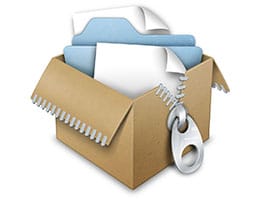 Decompress is a verb that refers to minimizing or eliminating compression in a closed place or in a body. The process and result of decompressing is called decompression.
Decompress is a verb that refers to minimizing or eliminating compression in a closed place or in a body. The process and result of decompressing is called decompression.
Compression is the pressure to which a body is subjected through the action of opposing forces that develop a tendency to reduce its volume. The action of decompressing is the opposite procedure, since it involves reducing said compression.
The interior of an airplane, for example, is pressurized : it has a system to maintain normal atmospheric pressure beyond the external pressure that is registered due to altitude. A failure, however, can decompress the cabin. The unplanned reduction in the pressure of a certain system is called uncontrolled decompression .
The idea of decompressing is also used in a symbolic sense regarding social pressure . When people are angry or upset about something, they may press for an answer or solution. This pressure can even lead to episodes of violence. That is why it is important that the authorities or those responsible for this tension take care of decompressing the situation. Suppose that, in a city, a massive march is held demanding greater security. Faced with this demonstration, the government tries to decompress by announcing that it will increase the number of police officers on the streets and that it will present a bill to aggravate the penalties applied to criminals.
In the field of computing , files can be compressed to have a smaller size or weight by eliminating bits . To open an unzipped file, it must first be unzipped.
Thanks to compression , it is possible to store and transmit large files more quickly, either taking up less disk space, consuming less data when transferring over a network or accelerating the process. Broadly speaking, we can generalize that text files are the ones that take up the least space and, therefore, the ones that are not usually compressed; Of course it is also possible to do it, and in fact it does not involve major complications.
 The file types most often compressed are photos, audio, and movies; The latter are a fusion of the first two types, since they are made up of a large number of images combined with sound files. In order to save money on storage media, companies also use compression to distribute their products such as music discs and movies; As mentioned before, the respective players must unzip the files before reading them.
The file types most often compressed are photos, audio, and movies; The latter are a fusion of the first two types, since they are made up of a large number of images combined with sound files. In order to save money on storage media, companies also use compression to distribute their products such as music discs and movies; As mentioned before, the respective players must unzip the files before reading them.
Of course, this process can be carried out through several methods , each with its pros and cons. First of all, we must understand that the ideal of compression is to make a file take up less space without losing its essence , so that it is possible to recover it when decompressing it.
Simply put, there are two possible ways to compress a file: with and without data loss. To remove data considered unnecessary or to ensure that it takes up less space, various mathematical methods are applied (in more technical terms, we talk about algorithms , that is, series of steps that are repeated as in a recipe).
Decompressing a large file at runtime, that is, at the moment it should be played, requires a lot of processing power. This is very common nowadays, and for this the components of devices such as video game consoles and Blu-ray players are custom manufactured, thinking about this function so that it can be carried out without having to run a separate program. .
